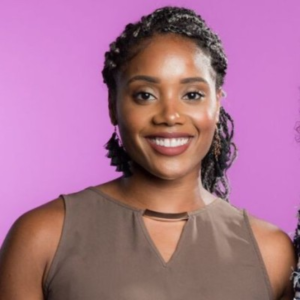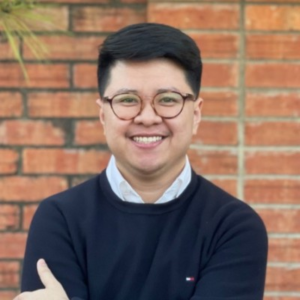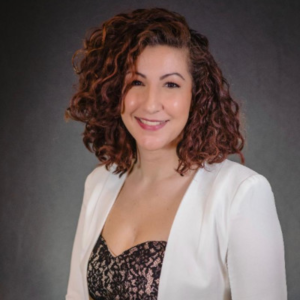Introduction to Change-Making in the Workplace Series
Earlier this year, Tufts Career Center’s Career Fellows Ismenia and Jesse moderated a panel on Change-Making in the Workplace. We will be breaking down that conversation into smaller blog posts, but if you are interested in watching the whole panel, you can do so here!
Here is the premise for the discussion: We continue to hear stories of underrepresentation and inequality in and around the workplace. How are companies responding to these longstanding injustices in their own workplaces, society and beyond? Learn about what it means to be a changemaker in the workplace and gain insight into what sort of influence you can have.
Panelists Sharing Thoughts, Insights, and Experiences
- Reema Elghossain, Vice President at 4A’s Foundation
- Phuong Ta ’16, Executive Search Consultant at Isaacson, Miller
- Gabrielle (Gabby) Thomas ’13, Diversity, Inclusion, & Belonging Program Manager at HubSpot
Tackling DE&I Projects
Could you talk about a specific problem, a specific project, each of you tackled for diversity, equity, and inclusion?
 Gabby: The first project that comes to mind, and I didn’t have the let’s say the issue of lack of resources, so it has a pretty good ending, but last year when we created and released a Black Lives Matter action plan and it was really important for us that it focused not only on our employees, but also our customers. I was tasked along with someone from our user research/user experience team, to do research on our black customers and partners, so basically agency partners and customers who use our software. Basically the software is meant to help businesses do what they do, that’s like the simplest way and probably marketing is upset for me saying that, but they just help businesses grow. What we did was really try to take a hard look at for the customers who are using our software, what is their experience? There’s the experience from actually using the tools and how it helps their business, but also HubSpot is really founded on giving value before you extract it, so there is a whole other experience with working with the company that is contingent on how much are you taking away from this experience and not just what are we getting from it. Those were basically the two parts of the research we were doing and it was super enlightening for me because as I said, I used to work on customer success and I used to work with our customers before coming into this current role. And so especially being a black woman, I was always on the lookout for, our black customers in this case, are they there? Especially the agency partner population, which is much smaller and like a lot of white men in the agency world and so if I ever saw one, I was pumped.
Gabby: The first project that comes to mind, and I didn’t have the let’s say the issue of lack of resources, so it has a pretty good ending, but last year when we created and released a Black Lives Matter action plan and it was really important for us that it focused not only on our employees, but also our customers. I was tasked along with someone from our user research/user experience team, to do research on our black customers and partners, so basically agency partners and customers who use our software. Basically the software is meant to help businesses do what they do, that’s like the simplest way and probably marketing is upset for me saying that, but they just help businesses grow. What we did was really try to take a hard look at for the customers who are using our software, what is their experience? There’s the experience from actually using the tools and how it helps their business, but also HubSpot is really founded on giving value before you extract it, so there is a whole other experience with working with the company that is contingent on how much are you taking away from this experience and not just what are we getting from it. Those were basically the two parts of the research we were doing and it was super enlightening for me because as I said, I used to work on customer success and I used to work with our customers before coming into this current role. And so especially being a black woman, I was always on the lookout for, our black customers in this case, are they there? Especially the agency partner population, which is much smaller and like a lot of white men in the agency world and so if I ever saw one, I was pumped.
So it was enlightening and really rewarding for me to be able to do this work and really dig deep in to ideas like what are they experiencing from the side of just using the product which they were fine with it, but more important, on the other side of what is the experience that they actually have with HubSpot and the products and the resources education we provide to them. I was stunned to say, I was like wow, I feel like there were parts of this that I wasn’t even anticipating that made me question how did I not think about this when I was in Customer Success, being someone who looked like them and part of me felt a little bit of guilt in that way. But, as I said, really enlightening experience, really digging deep into how we as a software company can actually do more than what you would expect a software company to do. That was like the big point where we discussed what can we be doing better to serve you [the customer]. Everyone’s said, ‘oh just like make good software’ and it’s sharing, well no, there’s actually so much more with the place that we hold in the industry, that we could be creating spaces for our black business owners, our women owned business owners, to come together and convene and have that community. Why wouldn’t we do something like that? It was super exciting, and it’s caused a lot of like change within the company since then. That has a happy ending, but during that time it felt like opening Pandora’s box, but in a good way. At least we had the backing of the company to be able to do stuff like that and again, be able to then make the promise to our customers that we want to do better, how can we and just listening to them.
 Phuong: For me, I’m actually, my company actually, is in the work of rolling out ERGs, the Employee Resource Groups right now. I’m in conversation to start one for Korean Trans Employees, but the conversation I’m trying to sort out with leadership right now is what are the expectations, what are the resources they willing to put behind us, because right now the idea I think I’m hearing is they want a group to come together to educate companies on what our group is about or what our identity means. To be frank, I only have certain energy to educate people on this topic, they need to do their homework as well and I want more than that, I want more than a space for us to come together and commiserate. It’s not going be a good use of anyone’s time if we just have a group to do just that. I want us to be having the power to advocate for ourselves, to ask for additional protection and rights. We recently had Trans Day of Visibility last week and you probably heard this sentence before, but I believe is that visibility without protection is a trap. So if I want to ask my fellow co-workers to join me in this ERG, what can I offer them because otherwise it’s going to be extra emotional burden, extra labor, that we have to take on to carry this out. Why do we have to educate the rest of the firm and I don’t think that’s fair for all, so before we actually get this ERG started, I want to get it clear on what we can expect from leadership if we get this off the ground. So that’s another conversation I’m having right now.
Phuong: For me, I’m actually, my company actually, is in the work of rolling out ERGs, the Employee Resource Groups right now. I’m in conversation to start one for Korean Trans Employees, but the conversation I’m trying to sort out with leadership right now is what are the expectations, what are the resources they willing to put behind us, because right now the idea I think I’m hearing is they want a group to come together to educate companies on what our group is about or what our identity means. To be frank, I only have certain energy to educate people on this topic, they need to do their homework as well and I want more than that, I want more than a space for us to come together and commiserate. It’s not going be a good use of anyone’s time if we just have a group to do just that. I want us to be having the power to advocate for ourselves, to ask for additional protection and rights. We recently had Trans Day of Visibility last week and you probably heard this sentence before, but I believe is that visibility without protection is a trap. So if I want to ask my fellow co-workers to join me in this ERG, what can I offer them because otherwise it’s going to be extra emotional burden, extra labor, that we have to take on to carry this out. Why do we have to educate the rest of the firm and I don’t think that’s fair for all, so before we actually get this ERG started, I want to get it clear on what we can expect from leadership if we get this off the ground. So that’s another conversation I’m having right now.
 Reema: I mentioned I service the advertising industry, but what I also do, is I have a team of my own. So I run a business and I think for me the most impactful part of the DEI work that I’ve done is what I’ve done within, for my own team. I run a team of, right now, all women of color and we’re about to add five more people to our team and it’s very important for me that I lead by the example I want the industry to do. I created a whole business plan and a new budget and everything for the year and wanted to right-size my team because what I found out last year by asking a lot of questions, and last year was a year to ask a lot of questions if you ever felt scared to do it before, but asking a lot of questions and finding out that myself included and my team were experiencing some pay equity gaps within our own organization. So one, it’s having to have those tough conversations and then saying okay I’m doing this for me, I’m doing this for my team, I’m doing this for everybody else that comes after us and so I put in this big proposal for pay equity within my own organization and what I think is right and that took a lot of weeks and months of stress and pain and then really just learning how to have a really deep formal and direct conversation about it. I was able to get pay equity for not just for my team, but for the entire organization and that’s now the mission for the year and talking about racial and gender pay equity is a tough thing, but now we’re using it as a benchmark for what we’re going to do for the entire industry, and I think it’s just something that is a really important topic right now. Especially as you are going into your careers to really start understanding the impact of what happens with salaries within your industry. We’re now creating blueprints about that for the industry and so that’s something I’m really excited about. MAIP, as I mentioned is the Multicultural Advertising Intern Program, and it’s been around for 48 years. I didn’t start it, but what we’ve done in the last two years we turned into a virtual program and we have 430 fellows that are going to be going in this year continuing to grow and expand and create opportunities for young people of color in the [advertising] industry is something I’m really excited and proud about.
Reema: I mentioned I service the advertising industry, but what I also do, is I have a team of my own. So I run a business and I think for me the most impactful part of the DEI work that I’ve done is what I’ve done within, for my own team. I run a team of, right now, all women of color and we’re about to add five more people to our team and it’s very important for me that I lead by the example I want the industry to do. I created a whole business plan and a new budget and everything for the year and wanted to right-size my team because what I found out last year by asking a lot of questions, and last year was a year to ask a lot of questions if you ever felt scared to do it before, but asking a lot of questions and finding out that myself included and my team were experiencing some pay equity gaps within our own organization. So one, it’s having to have those tough conversations and then saying okay I’m doing this for me, I’m doing this for my team, I’m doing this for everybody else that comes after us and so I put in this big proposal for pay equity within my own organization and what I think is right and that took a lot of weeks and months of stress and pain and then really just learning how to have a really deep formal and direct conversation about it. I was able to get pay equity for not just for my team, but for the entire organization and that’s now the mission for the year and talking about racial and gender pay equity is a tough thing, but now we’re using it as a benchmark for what we’re going to do for the entire industry, and I think it’s just something that is a really important topic right now. Especially as you are going into your careers to really start understanding the impact of what happens with salaries within your industry. We’re now creating blueprints about that for the industry and so that’s something I’m really excited about. MAIP, as I mentioned is the Multicultural Advertising Intern Program, and it’s been around for 48 years. I didn’t start it, but what we’ve done in the last two years we turned into a virtual program and we have 430 fellows that are going to be going in this year continuing to grow and expand and create opportunities for young people of color in the [advertising] industry is something I’m really excited and proud about.

